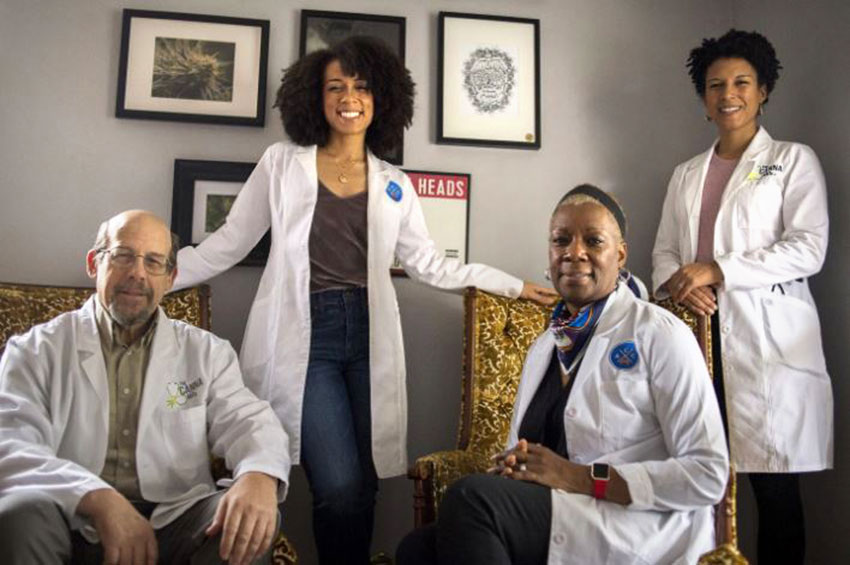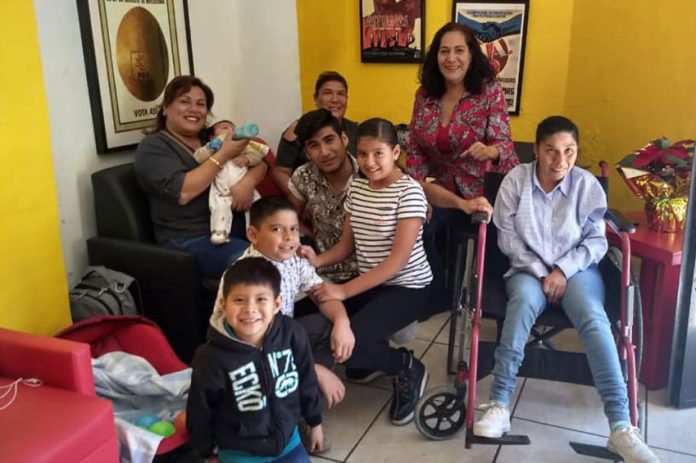A few days ago, I attended a seminar called Hemp & Learn in Ajijic, Jalisco. I was persuaded to go by one Juan Álvaro Cortés of Guadalajara who, it seems, runs a belt-manufacturing company on weekdays and spends his weekends transforming the lives of epileptic children through the Fundación Mexicana de Cannabis Medicinal A.C. (FMCAM), a non-profit organization that advises the parents of children with epilepsy.
“We’ve helped more than 400 children,” Cortés had told me in a telephone interview. “You really should come and investigate what it’s all about.”
I did. In fact, I arrived early at the seminar venue, Hotel Danza del Sol, which gave me an opportunity to interview María López (not her real name), the mother of one of those 400 epileptic children.
I was astonished at what she told me:
“I have an 11-year-old girl and she has had epilepsy since she was 8 months old. In spite of that, she was doing really well, at first. But then it was discovered that she had a brain tumor and they operated. This was five years ago.
“The operation provoked a dramatic loss of motor functions. She could no longer speak, she could no longer walk and she couldn’t even take solid food anymore, only liquids. So we went to many, many neurologists. We looked for help from the best doctors in Houston and San Francisco. …
“Well, we got no results from any of them, so we turned to homeopaths and then to shamans … even to brujos [shamans]! But she didn’t get better.
“Then some friends of ours told us about medical cannabis in Colorado. So we packed our bags and went to Colorado Springs, to Charolotte’s Web, which was started because of the problems of a child similar to our own.
“They said, ‘Yes, we have a cannabis extract that could help your daughter, but we’re not quite ready to bottle it and sell it legally.’ And they wouldn’t let us have it, which was very hard to take, because our daughter was getting worse and worse. But they began working with the Stanley brothers, solved their problems and then they phoned us: ‘Now we can sell it legally.’
“However, they couldn’t ship it to Mexico because here it’s still illegal, so I had to fly to Colorado — more than once! — and each time, hide it in my suitcase and run the risk of being caught and imprisoned.
“And we gave it to our little girl … not just like that, of course. We had the help of a doctor in the U.S.A. with 30 years of experience in this, and he did a series of tests before prescribing the right amount for our child.

“So we gave it to our daughter and we saw an immediate change. She had been convulsing 30 times a day and the number went down: 15 convulsions, then a few days later 10, and so on. Today she still has some convulsions, but she is 80% better.
“As far as her cognitive abilities go, the change was instant. She had been staring out at nothing — she had been ‘somewhere else’ — and now she was with us again … and this took place the very first time she took [cannabidiol].
“Her motor coordination also improved: now she walks better and has much better hand-eye coordination. This didn’t just change my daughter’s life; it changed the lives of every single member of our family.”
After speaking with María, I still had all morning ahead of me to learn more about cannabidiol, CBD for short, and exactly why it seems to be so effective in alleviating everything from pain to insomnia … including cancer, of course.
But first I have to mention the stigma. CBD is extracted from cannabis. Despite the fact that it doesn’t get people high, this raises the eyebrows of some individuals who suspect that “medical marijuana” is just a strategy invented by drug addicts to get legal access to their favorite weed.
Well, the seminar I attended not only established the legitimacy of CBD as a medicine but also explained precisely why it is said to alleviate such a wide variety of health problems.
So I invite you to forget, for a moment, that CBD has anything to do with marijuana and to note the discoveries and observations of the people who give this seminar — which will be repeated in numerous places in Mexico.
The first team that spoke was composed of “the Doctors Knox,” a family of MDs from the state of Oregon. They told us that years ago medical researchers were curious as to why cannabis could affect people in so many ways. They soon discovered that all human beings have receptors in the walls of the cells of all their body parts “which control balance among all bodily functions.”
If a person has a migraine or is suffering from post-traumatic stress disorder (PTSD), the body tries to alleviate the problem by producing chemical messengers that are dispensed to those receptors, fitting into them like keys into locks and bringing the body back to harmony.
This, the Knoxes pointed out, is a system for restoring balance that is found in every human being on Earth and has been part of our makeup since we first crawled out of the primordial slime.
Now, I would think that such a basic and marvelous self-healing program would be named something like “The Holistic Harmony System.” But to my surprise I learned that is is officially called the Endocannabinoid System or ECS, and we now know it regulates immune response, liver function and the production of insulin, among other things.
What? Why would such an important system be called that? Well, amazingly, no one knew we had such a system until researchers happened to ask exactly why cannabis affects people. So, following proper scientific custom, the system was named after the substance that provoked the study.
[soliloquy id="101194"]
During the second half of the seminar, Dr. Philip Blair, a retired U.S. Army colonel demonstrated how CBD, marketed as hemp extract, helped restore the balance and harmony of the Endocannabinoid System in specific individuals who had been suffering from anxiety, depression, insomnia and PTSD.
The improvements in these people’s lives appeared to be just as dramatic as those experienced by María’s child and I found it a bit difficult to understand why cannabis is still listed in some places as a Schedule 1 Controlled Substance with “no currently accepted medical use.”
The next Hemp & Learn seminar will take place at 9:30 a.m. on February 15 at the NH Collection Hotel in Colonia Providencia, Guadalajara. For questions about CBD or about future Hemp & Learn seminars in your area, call 333 968 7805, either in Spanish or in English.
The writer has lived near Guadalajara, Jalisco, for more than 30 years and is the author of A Guide to West Mexico’s Guachimontones and Surrounding Area and co-author of Outdoors in Western Mexico. More of his writing can be found on his website.
CORRECTION: The phone number for the Hemp & Learn seminars has been corrected.
